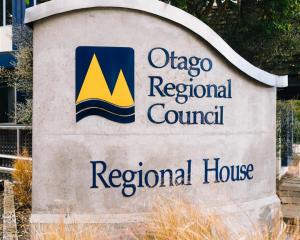The high rainfall in early February set records; the upper Pomahaka River recorded its second highest level at 454 cumecs and the Dart River reached its highest flow on record at 1469 cumecs. the Clutha River at Balclutha also triggered alarm levels for several days.
During this time there was a "serious issue" with software not sending out a page alarm to the Otago Regional Council flood manager.
Council environmental information and science director John Threlfall told the recent natural resources committee meeting it resulted in telephone warnings to landowners being up to two or three hours late.
"It was an unforeseen bug in a piece of software," he said. It was at a time when the MetService had not predicted any major event.
"It was a freak one and the system didn't wake the flood manager."
The system had a backup - if the flood manager did not answer the alarm it notified the next person on the list. However, in this case the alarm did not go out at all.
However, the warning service was not a replacement for farmers using their own initiative in adverse weather conditions as they were on site and knew how wet their property was getting, he said.
"They would have realised it was raining a lot before they went to bed."
The software had previously worked well and it was believed the failure was due to a corrupt file. A new version of the software had since been installed and two further systems had been initiated.
"Extra systems would be overkill. The pager system works well and we've introduced two or three things to reduce the chances of it happening again," Dr Threlfall said.
A weekly test of the pager alarms would be carried out. As well, a secondary independent piece of software would alert the flood manager via text message.
Regional council chief executive Graeme Martin said the issue needed to be put into perspective as the system faced other risks every day such as vandalism and lightning strikes.
"The costs of replicating the system is irrationally high. This is not a pathway for people to abdicate their own responsibility."











